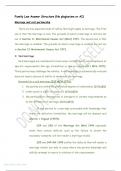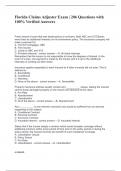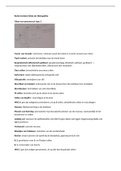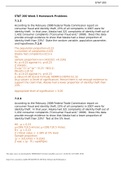Lecture notes
Family Law Notes and Answer Structure UOL LLB (No plagiarism/AI)
- Module
- Family Law (LA2019)
- Institution
- Birkbeck, University Of London (BBK)
These are my Family law notes and answer structures that I use in UOL LLB exams. They are free of plagiarism and have no traces of AI like ChatGPT.
[Show more]












